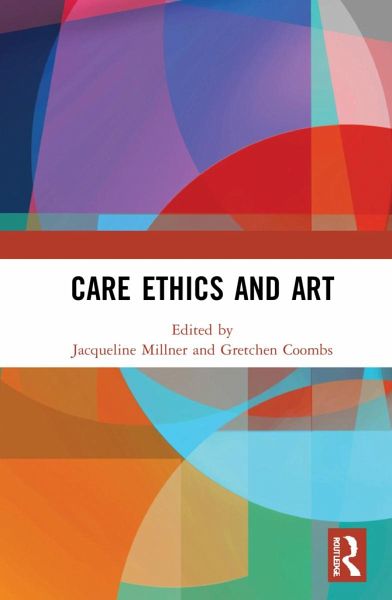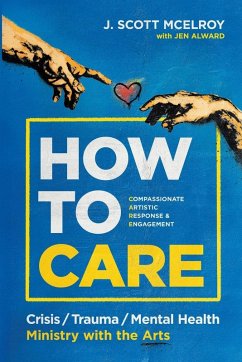
Care Ethics and Art
Versandkostenfrei!
Versandfertig in 1-2 Wochen
188,99 €
inkl. MwSt.
Weitere Ausgaben:

PAYBACK Punkte
94 °P sammeln!
What would it mean to substitute care for economics as the central concern of politics? This anthology invites analysis, reflections and speculations on how contemporary artists and creative practitioners engage with, interpret, and enact care in practices which might forge an alternative ethics in the age of neoliberalism. Interdisciplinary and innovative, it brings together contributions from artists, researchers and practitioners who creatively consider how care can be practised in a range of contexts, including environmental ethics, progressive pedagogies, cultures of work, alternative eco...
What would it mean to substitute care for economics as the central concern of politics? This anthology invites analysis, reflections and speculations on how contemporary artists and creative practitioners engage with, interpret, and enact care in practices which might forge an alternative ethics in the age of neoliberalism. Interdisciplinary and innovative, it brings together contributions from artists, researchers and practitioners who creatively consider how care can be practised in a range of contexts, including environmental ethics, progressive pedagogies, cultures of work, alternative economic models, death literacy advocacy, parenting and mothering, deep listening, mental health, disability and craftivism. Care Ethics and Art contributes new modes of understanding these fields, together with practical solutions and models of practice, while also offering new ways to think about recent contemporary art and its social function. The book will benefit scholars and postgraduate research students in the fields of art, art history and theory, visual cultures, philosophy and gender studies, as well as creative and arts practitioners.













